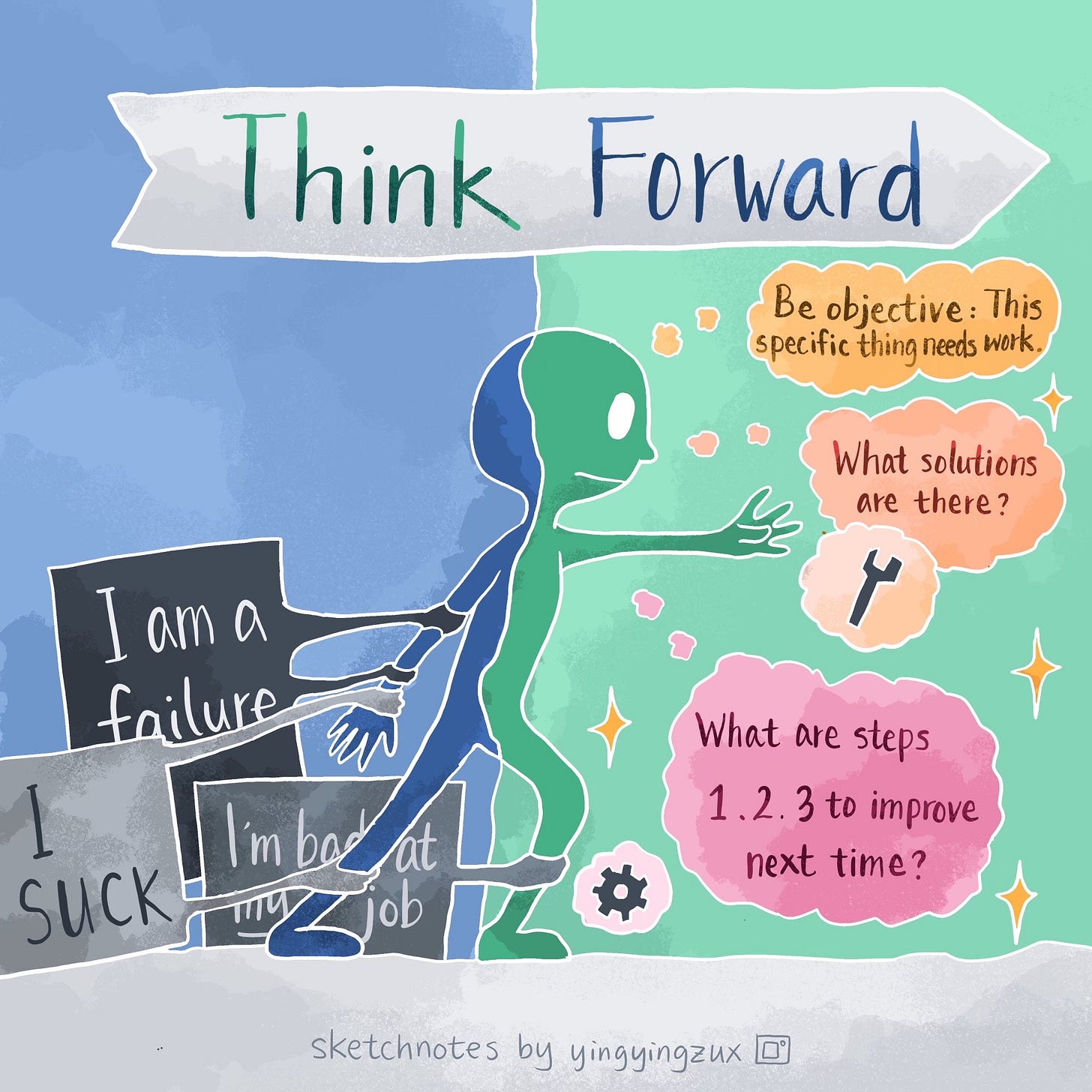Think forward
Looking back, I wish my reaction had been, "Thanks for catching that. It's not too late to fix it." I wish I had simply accepted the feedback, made the necessary corrections, and moved on. No drama.
For the longest time, I was my own worst critic. I remember this one time from my early days as a designer, during a design review, a coworker pointed out a glaringly obvious logic flaw in my design – something I had completely missed. My inner voice immediately chimed in with, "Wow, you're really bad at this!" While I managed to keep my cool on the outside and thank them for the feedback, inside, my mind was racing.
Having recently transitioned into UX design, I was particularly sensitive to others' perceptions of my skills. Any flaw someone found in my work sent me into a spiral of anxiety and self-doubt.
After this happened a few times, I started to notice a pattern. Whenever I focused on what I did wrong, I would fall into a loop of negative thinking. I was convincing myself that my work was subpar, my skills inadequate, and I sucked at the tasks. These thoughts would stick around for hours, popping up whenever my mind wandered. It wasn't easy to shake them off.
Looking back, I wish my reaction had been, "Thanks for catching that. It's not too late to fix it." I wish I had simply accepted the feedback, made the necessary corrections, and moved on. No drama.
Sounds simple, right? Just flip the script from "I messed up" to "How can I do better next time?" But switching my focus from beating myself up to actually fixing problems was a whole new game to me. I had to constantly remind myself:
Be objective: It's not "I'm terrible," it's "This specific thing needs work."
Focus on finding solutions.
Break it down: What are steps 1, 2, and 3 to improve next time?
In a nutshell, it was about spending less time worrying about the past and more time looking ahead.
I spent a good few months rewiring my brain. Every evening, I wrote down three wins from the day and three areas I could improve. For the latter, I thought of ways to do better next time. It was all about training myself to approach challenges with a forward-thinking mindset.
As time went on, those anxious states occurred less and less frequently. I started to see myself more clearly, recognizing both my strengths and weaknesses. I became better at accepting myself, and felt more confident and positive about things.
I finally felt like I was in the driver's seat of my own emotions. I learned to either accept things I couldn't change or work on those I could. It reminded me of a podcast where someone mentioned feeling conflicted about enjoying video games while simultaneously feeling guilty about "wasting time.” I decided I no longer wanted to fall into that trap of unproductive self-criticism.
I often remind myself: Who's going to be there for me till the end? It's me. While we can't control everything in life, we can choose how we react and take care of ourselves.
By accepting who we are, thinking forward, and taking small steps every day, we can keep growing and enjoy life.


